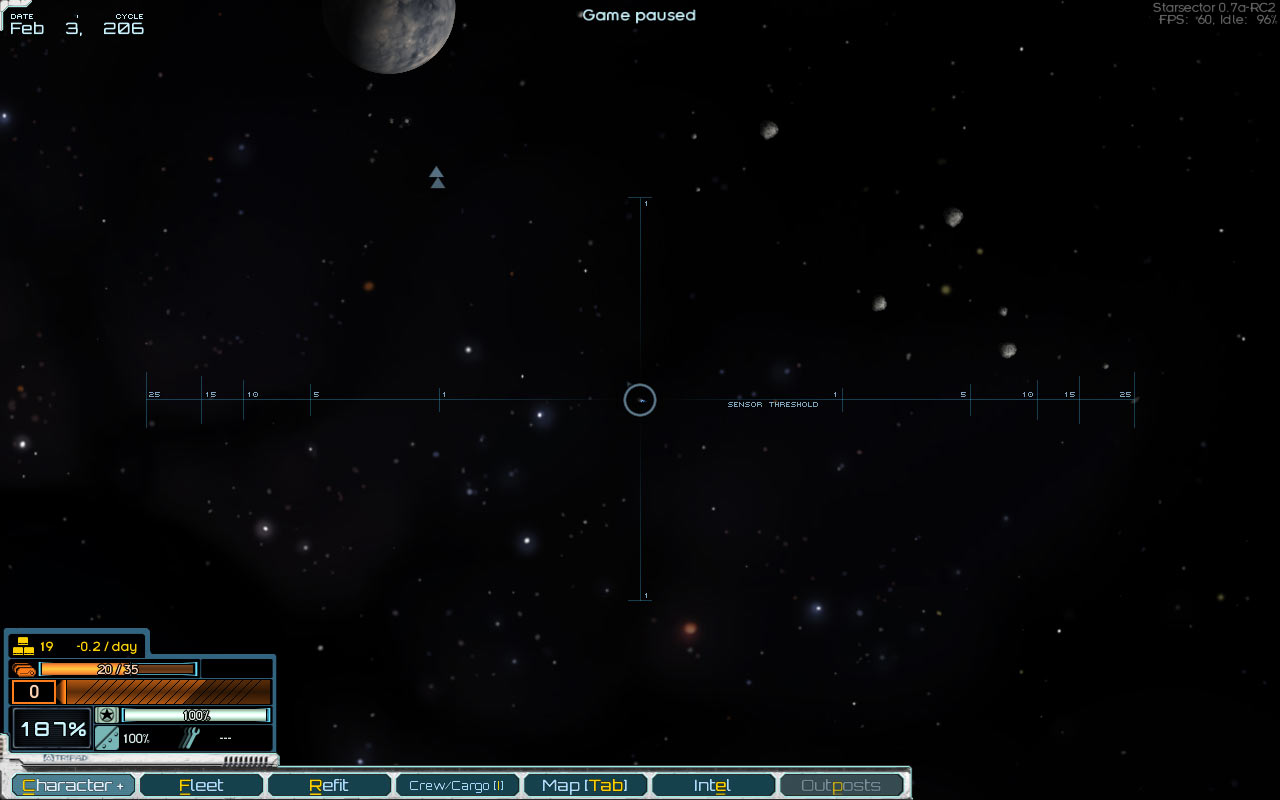For a while now, the core campaign gameplay has been pretty … let’s say straightforward. You click somewhere, your fleet goes there, you may chase or be chased along the way, and that’s pretty much all there is to it. It does the job as the “thing you do between the fun stuff” – battles, interacting with markets, and so on – but it doesn’t stand up as anything you’d want to do for its own sake. To be fair, not a lot of time has been dedicated to making it into that – until now.
It’s going to take multiple mechanics working together to bring campaign-level gameplay up to par with combat, and I’d like to talk about the first one of these that we’ve been working on: sensors, that is to say, a set of rules that determine when one fleet is able to see another.
It’s important to note that how sensors work will both influence and depend on other related mechanics (to be added in the near future), and so the current incarnation of sensors – the one I’m going to discuss now – is very likely to change. In general, the more specific a detail, the less likely it is to remain exactly as-is.
That aside, why sensors? Why can’t all fleets always see each other, the way they do now? There’s a realism argument for it, as spotting fleets across light-years doesn’t make a lot of intuitive sense, but I’m not a fan of the “realism” argument in general. It takes days to travel light-years of distance, so who’s to say where sensor tech is relative to that? Internal consistency of the rules and good gameplay are more important; given those, an in-fiction explanation for how things work shouldn’t be too difficult, if it even proves necessary.
What else, then?
First of all, suspense and a sense of discovery. If you see everything, there aren’t going to be any surprises. Say you’re traveling from Corvus to Asharu, and you’ve opened up the map to see the route – and you see that it’s clear of any enemies. From that point on, you know for a certainty that there’s no risk to the trip, and it stops being engaging and becomes a wait until it’s over.
If you don’t have perfect vision, on the other hand, space gets big and mysterious again. You start the trip – and see a sensor blip.

Read the rest of this entry »























